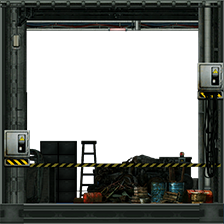Інсталювати Steam
увійти
|
мова
简体中文 (спрощена китайська)
繁體中文 (традиційна китайська)
日本語 (японська)
한국어 (корейська)
ไทย (тайська)
Български (болгарська)
Čeština (чеська)
Dansk (данська)
Deutsch (німецька)
English (англійська)
Español - España (іспанська — Іспанія)
Español - Latinoamérica (іспанська — Латинська Америка)
Ελληνικά (грецька)
Français (французька)
Italiano (італійська)
Bahasa Indonesia (індонезійська)
Magyar (угорська)
Nederlands (нідерландська)
Norsk (норвезька)
Polski (польська)
Português (португальська — Португалія)
Português - Brasil (португальська — Бразилія)
Română (румунська)
Русский (російська)
Suomi (фінська)
Svenska (шведська)
Türkçe (турецька)
Tiếng Việt (в’єтнамська)
Повідомити про проблему з перекладом


 Virginia, United States
Virginia, United States 















































└📁Program Files (x86)
⠀└📁steam
⠀⠀└📁steamapps
⠀⠀⠀└📁common
⠀⠀⠀⠀└📁Counter-Strike: Global Offensive
⠀⠀⠀⠀⠀└📁Skills
⠀⠀⠀⠀⠀⠀└⚠️This folder is empty
⠀⠀⠀⠀⠀└📁 Aim
⠀⠀⠀⠀⠀⠀└⚠️This folder is empty
📁USB (D:)
└📁CS:GO Cheats
⠀└⠀✅AimBot
⠀└⠀✅Bhops
⠀└⠀✅Cancerbot
⠀└⠀✅Triggerbot
Lets start with the basics.
Mass: It also tells you how much "stuff" is in it. Now by stuff I kind of mean atoms and molecules but different atoms and molecules do not weigh the same, so the amount of "stuff" is dependent on the thing we are talking about. It is also a measurement of inertia, which is an object resistance to acceleration (or deceleration). Units to measure mass include but are not limited grams, pounds, tons, kilograms, stones, etc.
Volume: How much room something takes up (3-d space) units include (cubic centimeters, cubic meters, liters, etc)
Density: Mass of an object per given unit of volume this can be found by dividing mass by the volume it occupies. (g/L which is a gram per liter, could also be gr